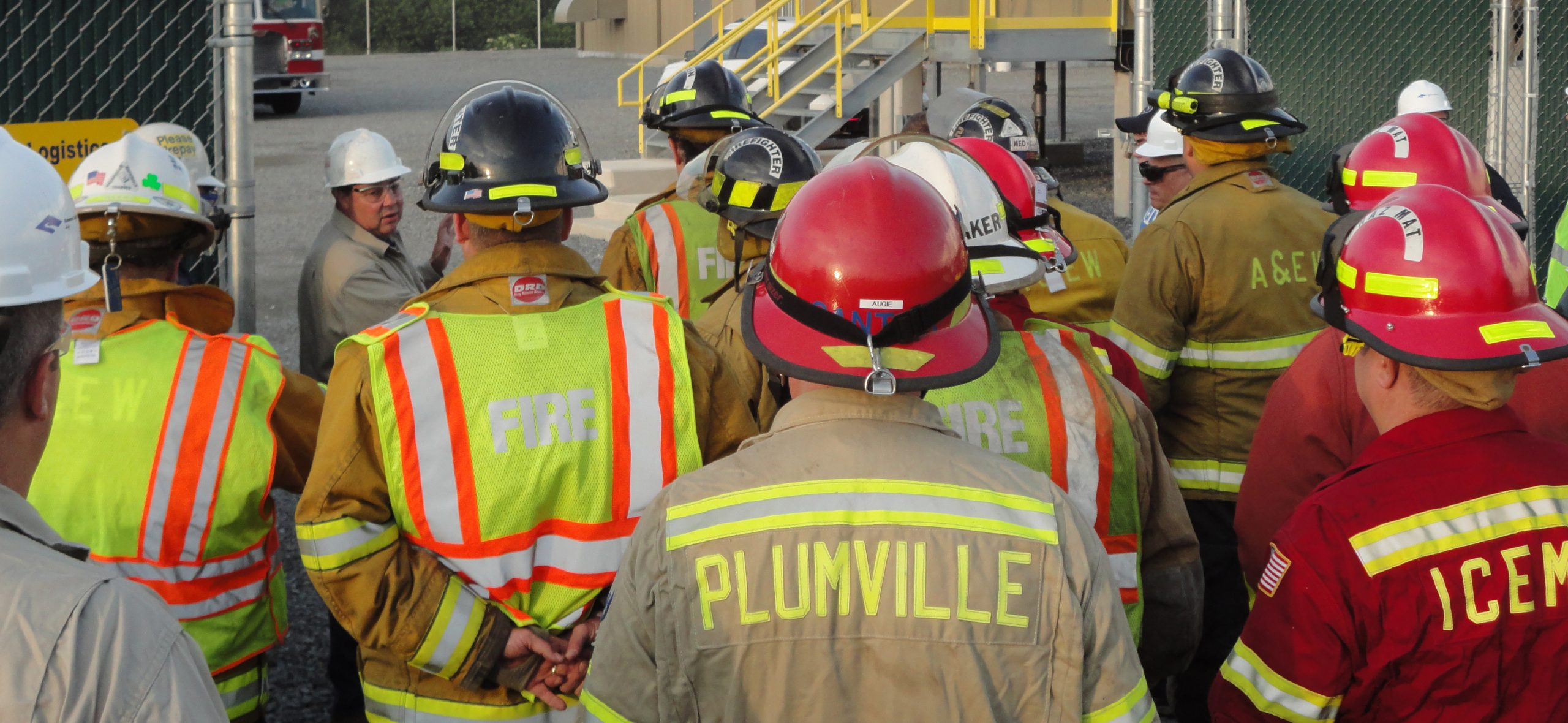Public Awareness
SafetyCommitment to Safety
Energy Transfer is fully committed to the safe, environmentally sound and efficient operation of our pipeline systems. This commitment is enhanced by increasing public awareness and understanding of pipeline locations and operations.
First Responder Training and Support
Building relationships between emergency planners, pipeline operators and first responders is a critical aspect of safe and collaborative pipeline operations. Energy Transfer has awarded more than $1.8 million in grants to emergency response organizations in Pennsylvania, Ohio, Michigan, Delaware and New Jersey through the First Responder Fund.
Established in 2016, the First Responder Fund has helped emergency response organizations enhance rescue capabilities through training; replacing or upgrading rescue equipment, including personal protective equipment and turnout gear; purchasing rescue engines and all-terrain vehicles; upgrading facilities; and more.
Mariner Emergency Responder Outreach Program
The Mariner Emergency Responder Outreach (MERO) Program is a supplemental training effort that focuses on responding to liquefied petroleum gas (LPG) pipeline incidents developed in 2013 for responders in communities near the Mariner pipeline. To date, the MERO program has educated nearly 3,000 first responders in communities along pipeline routes.
MERO training is provided by noted experts in emergency response to hazardous materials incidents who have decades of experience in the fire service.
Public Awareness Program
We strive to enhance public safety and environmental protection by increasing public awareness and knowledge of pipelines. Through our public awareness programs, our goal is to raise the awareness of the public and other key stakeholders about the presence of our pipelines in your community and to increase the understanding of the important role of pipelines.
In addition, Energy Transfer participates in yearly trainings for emergency responders and public officials in the communities where we operate. These are hosted in different areas each year in conjunction with other local utility companies.
Public Outreach
We are deeply committed to our core values of safety, security and environmental stewardship, and these values guide everything we do during construction of Mariner East 2 and beyond. Keeping stakeholders informed and gathering input from communities has consisted of:
Pipeline operators must develop and implement a written continuing public education program that follows the guidance provided in the American Petroleum Institute’s (API) Recommended Practice (RP) 1162, which has been incorporated by reference into the Code of Federal Regulations (CFR). Our outreach and communications to stakeholders in the project area meet all federal requirements and are consistent with industry standards.
Our public awareness program is directed at all stakeholder groups that interact with our pipelines. These stakeholder groups include:
- Residents who live on or near our pipelines
- Schools
- Businesses and places of congregation near the pipeline
- Agricultural businesses
- Local officials
- Emergency responders
- Excavators, contractors and land developers
Visit the U.S. Department of Transportation’s website to learn more about the above stakeholder groups.
We believe that a more informed public will play a significant role in helping to prevent accidents that are caused by third-party damage to pipelines and dangerous encroachments on pipeline right-of-way.
Emergency Preparedness
Under the Federal Emergency Management Agency’s National Incident Management System, we provide Incident Command System training to critical employees and have established written emergency procedures for a variety of emergency situations. Through the use of a unified Incident Command System, company personnel, contractors and representatives from government agencies, including the U.S. Department of Homeland Security and the U.S. Environmental Protection Agency, can work successfully together in response to all types of events.
Call Before you Dig
State law requires you to call 811 at least 72 hours before you plan to dig. Your local State One-Call Center will let you know if there are any buried utilities in the area, and the utility companies will be notified to identify and clearly mark the location of their lines at no cost to you. Don’t ever assume you know where the underground utilities are located.
One of the greatest single challenges to safe pipeline operations is the accidental damage caused by excavation, construction, farming activities and even homeowner household maintenance.
Call 811
at least
72 hours
hours before you dig
Four important steps can help prevent undesired consequences:





